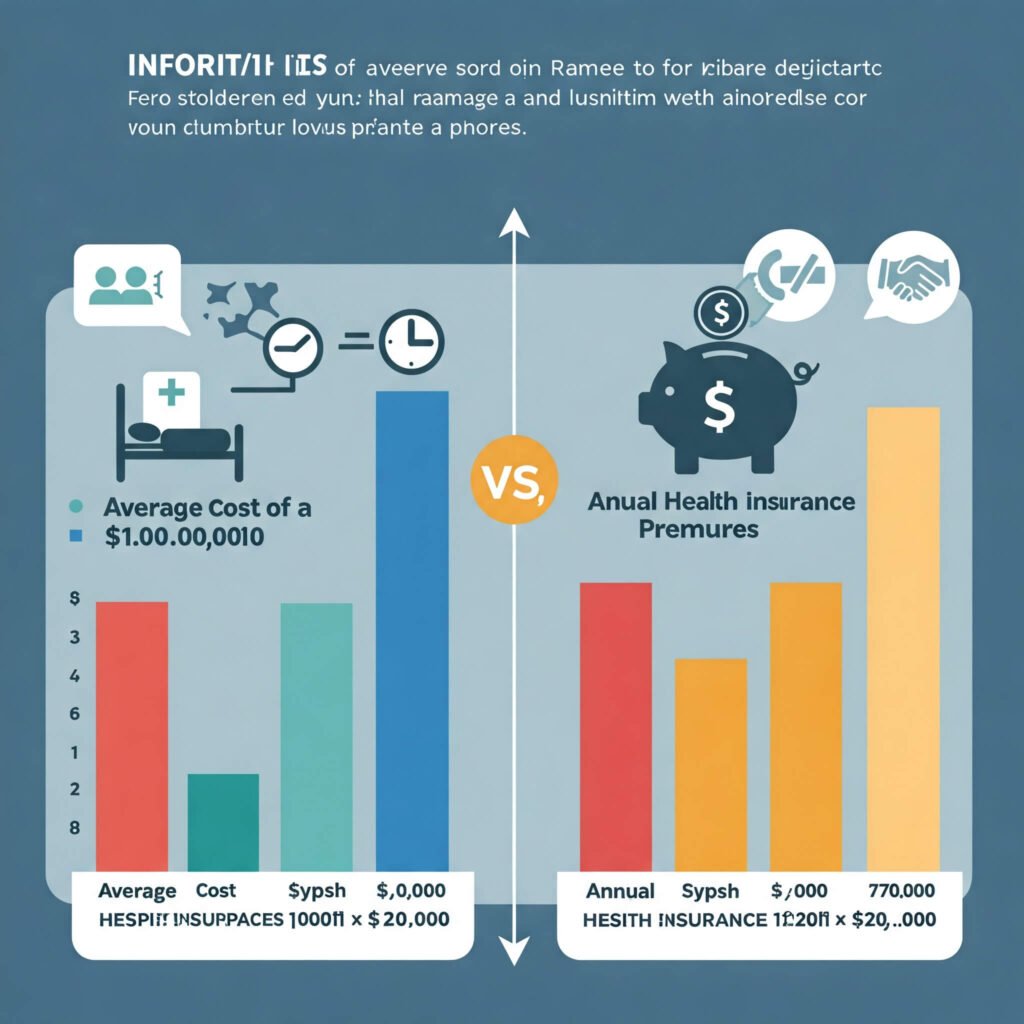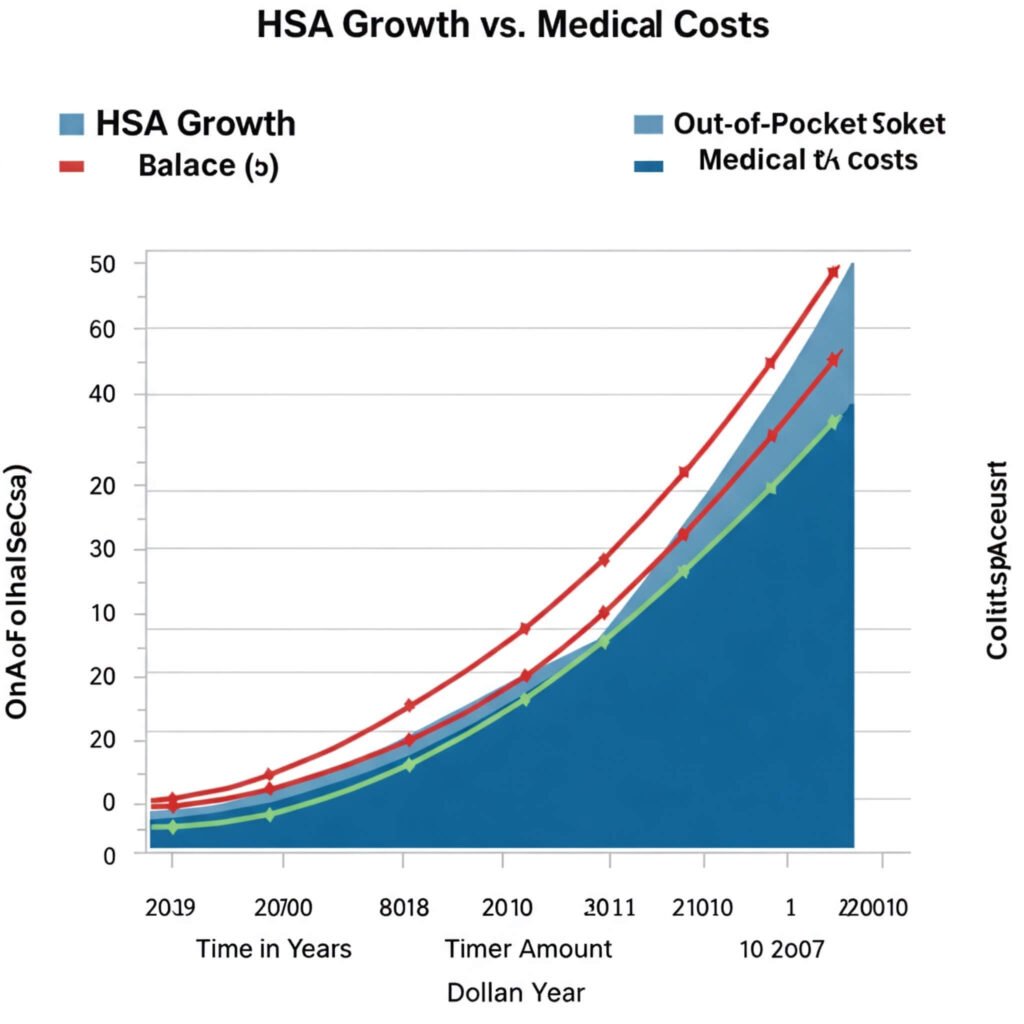Balancing health insurance vs. wealth is a critical challenge in today’s fast-paced world. Rising healthcare costs and financial uncertainties make it essential to protect both your health and your finances. Without the right health insurance, a single medical emergency can drain your savings. Conversely, over-investing in insurance can limit your ability to build wealth. This blog explores how to strike the perfect balance, offering practical tips, real-world examples, and data-driven insights to help you secure your future.
H2: Understanding Health Insurance vs. Wealth
To balance health insurance vs. wealth, you need to understand their interplay. Health insurance safeguards your physical and financial well-being by covering medical expenses. Wealth, on the other hand, represents your financial assets and ability to grow your money over time. Neglecting one for the other can lead to devastating consequences.
H3: The Cost of Ignoring Health Insurance
According to a 2023 Kaiser Family Foundation study, 26 million Americans remain uninsured, often citing high premiums. However, a single hospital stay can cost $10,000 or more, wiping out savings. For example, Sarah, a 35-year-old freelancer, skipped insurance to save money but faced a $15,000 bill after an emergency appendectomy. This setback delayed her home-buying plans by years.
H3: The Risk of Over-Prioritizing Wealth
Focusing solely on wealth can also backfire. John, a 40-year-old investor, funneled all his income into stocks but neglected health insurance. When diagnosed with a chronic condition, he had to liquidate investments to cover $20,000 in annual treatment costs, derailing his financial goals.

H2: 5 Practical Tips to Balance Health Insurance and Wealth
Balancing health insurance vs. wealth doesn’t have to be overwhelming. Here are five actionable strategies to protect both your health and finances:
H3: 1. Choose the Right Health Insurance Plan
Selecting a health insurance plan that fits your needs and budget is crucial. Consider factors like premiums, deductibles, and coverage limits. For instance, a high-deductible plan paired with a Health Savings Account (HSA) can save money while building tax-advantaged savings.
- Actionable Tip: Use tools like Healthcare.gov to compare plans based on your income and medical needs.
- Example: Lisa, a 28-year-old teacher, opted for a bronze plan with a $6,000 deductible, saving $200 monthly while maintaining essential coverage.
H3: 2. Build an Emergency Fund
An emergency fund acts as a buffer for unexpected healthcare costs, reducing reliance on savings or debt. Aim for 3-6 months of living expenses.
- Actionable Tip: Automate monthly transfers to a high-yield savings account, like those offered by Ally Bank.
- Stat: A 2024 Federal Reserve report found that 40% of Americans can’t cover a $400 emergency without borrowing.
H3: 3. Invest in Preventive Care
Preventive care, such as annual check-ups and vaccinations, can reduce long-term healthcare costs. Most health insurance plans cover these services at no extra cost.
- Actionable Tip: Schedule a yearly physical and review your plan’s preventive care benefits.
- Example: Mark, a 45-year-old accountant, caught early signs of hypertension during a free check-up, avoiding costly treatments later.
H3: 4. Diversify Your Wealth-Building Strategy
While securing health insurance, don’t neglect wealth-building. Diversify investments across stocks, bonds, and real estate to grow your assets safely.
- Actionable Tip: Start with low-cost index funds through platforms like Vanguard.
- Stat: A 2023 Fidelity study shows that diversified portfolios yield 7-10% annual returns on average.
H3: 5. Plan for Long-Term Healthcare Costs
Long-term care, such as nursing homes, can cost $100,000+ annually. Planning ahead with long-term care insurance or savings can protect your wealth.
- Actionable Tip: Consult a financial advisor to estimate future healthcare costs using tools like Genworth’s Cost of Care Survey.
- Example: Susan, a 50-year-old retiree, purchased long-term care insurance, preserving her retirement savings.

H2: Common Mistakes to Avoid When Balancing Health Insurance and Wealth
Even with the best intentions, pitfalls can derail your efforts to balance health insurance vs. wealth. Here’s what to watch out for:
- Underinsuring to Save Money: Low-cost plans may leave you vulnerable to high out-of-pocket costs.
- Ignoring Tax-Advantaged Accounts: HSAs and FSAs offer tax savings for medical expenses.
- Neglecting Financial Planning: Without a budget, you may overspend on insurance or investments.
- Skipping Preventive Care: Delaying check-ups can lead to costly health issues.

H2: Key Takeaways for a Secure Future
Balancing health insurance vs. wealth is about making informed choices that protect both your health and finances. By choosing the right insurance plan, building an emergency fund, investing in preventive care, diversifying investments, and planning for long-term costs, you can achieve financial security without sacrificing your well-being.
- Next Steps: Review your current health insurance plan and budget. Schedule a preventive check-up and set up an emergency fund today.
- Pro Tip: Use online calculators from sites like Bankrate to estimate your savings goals.





